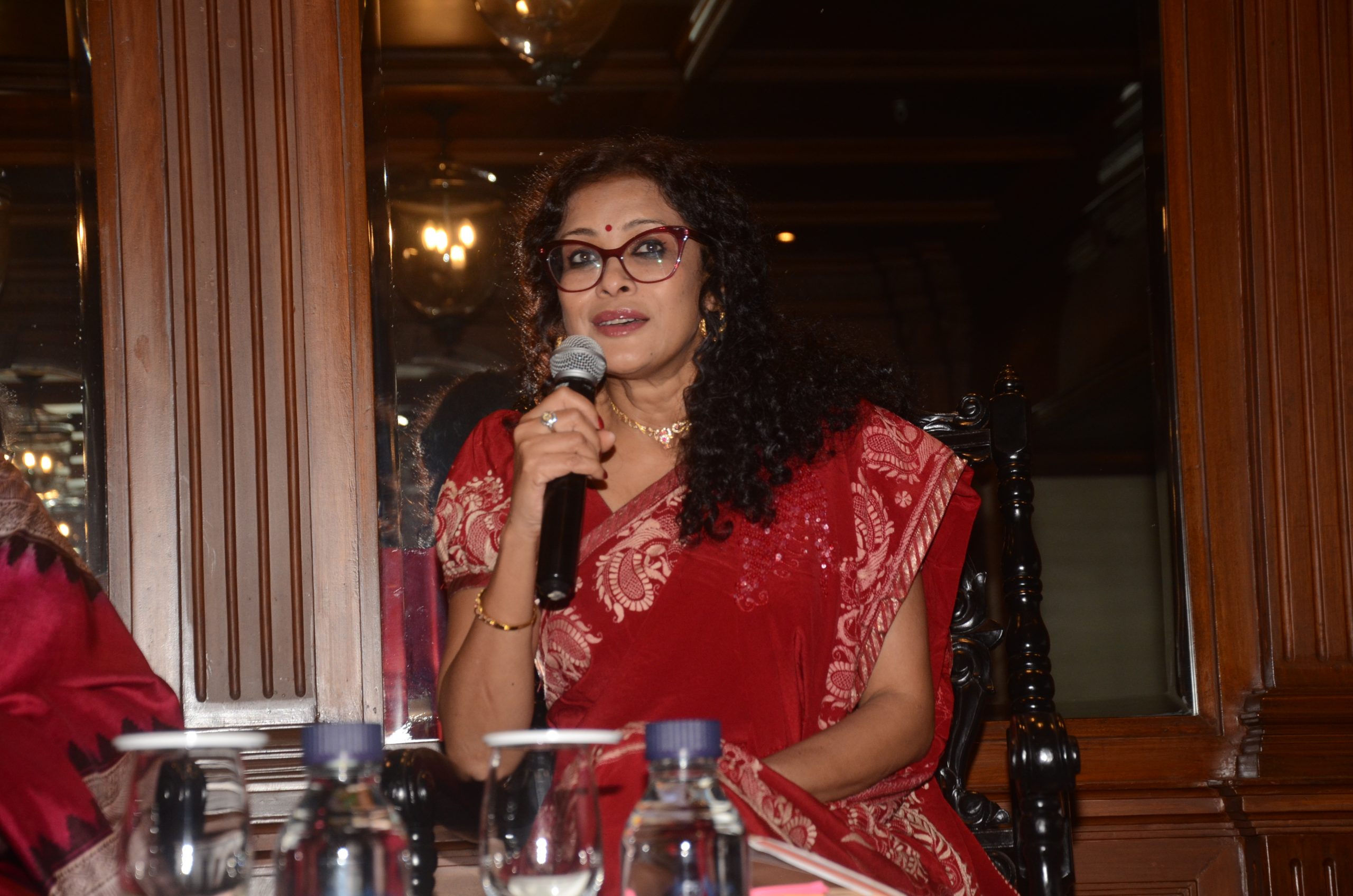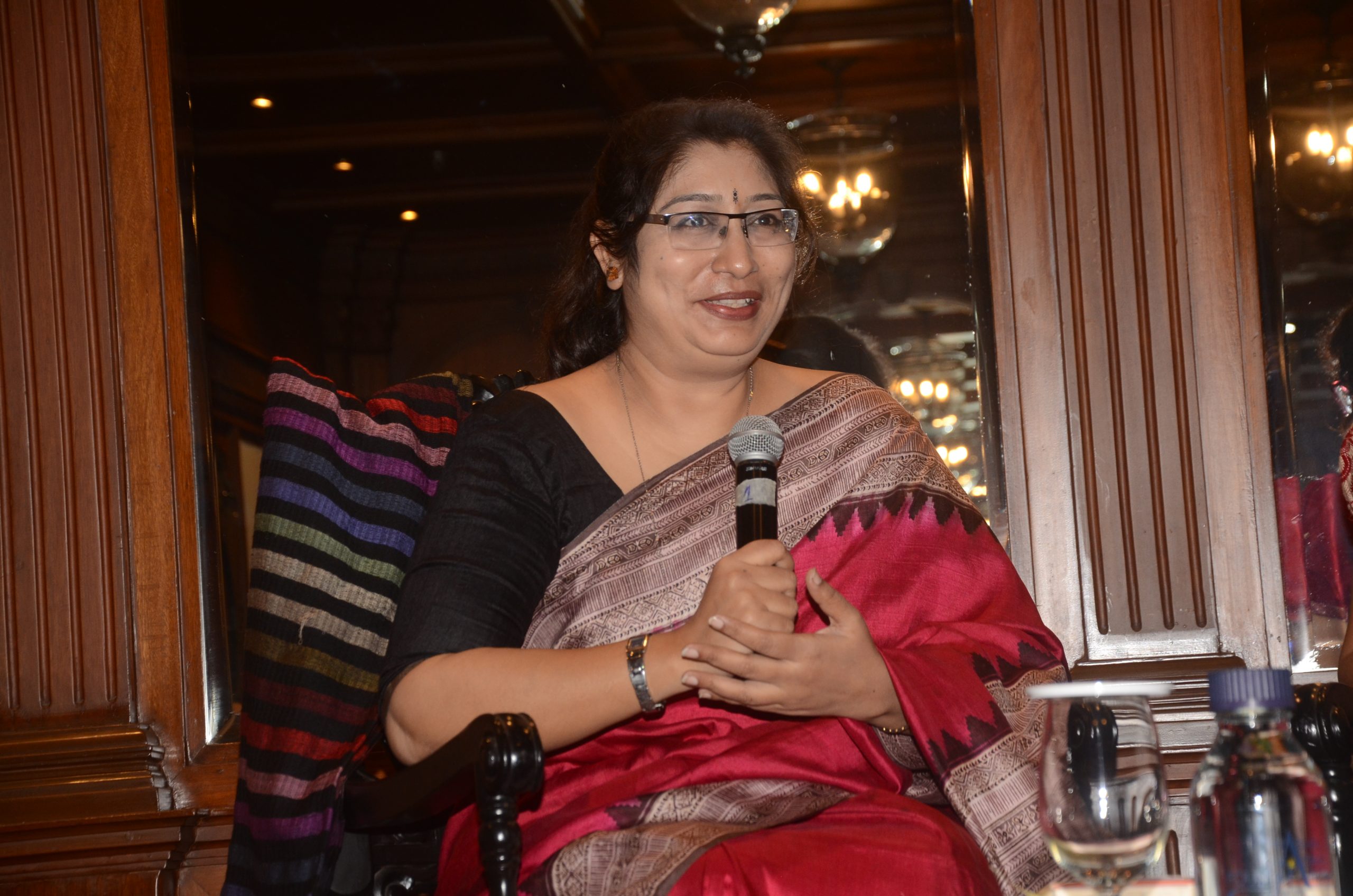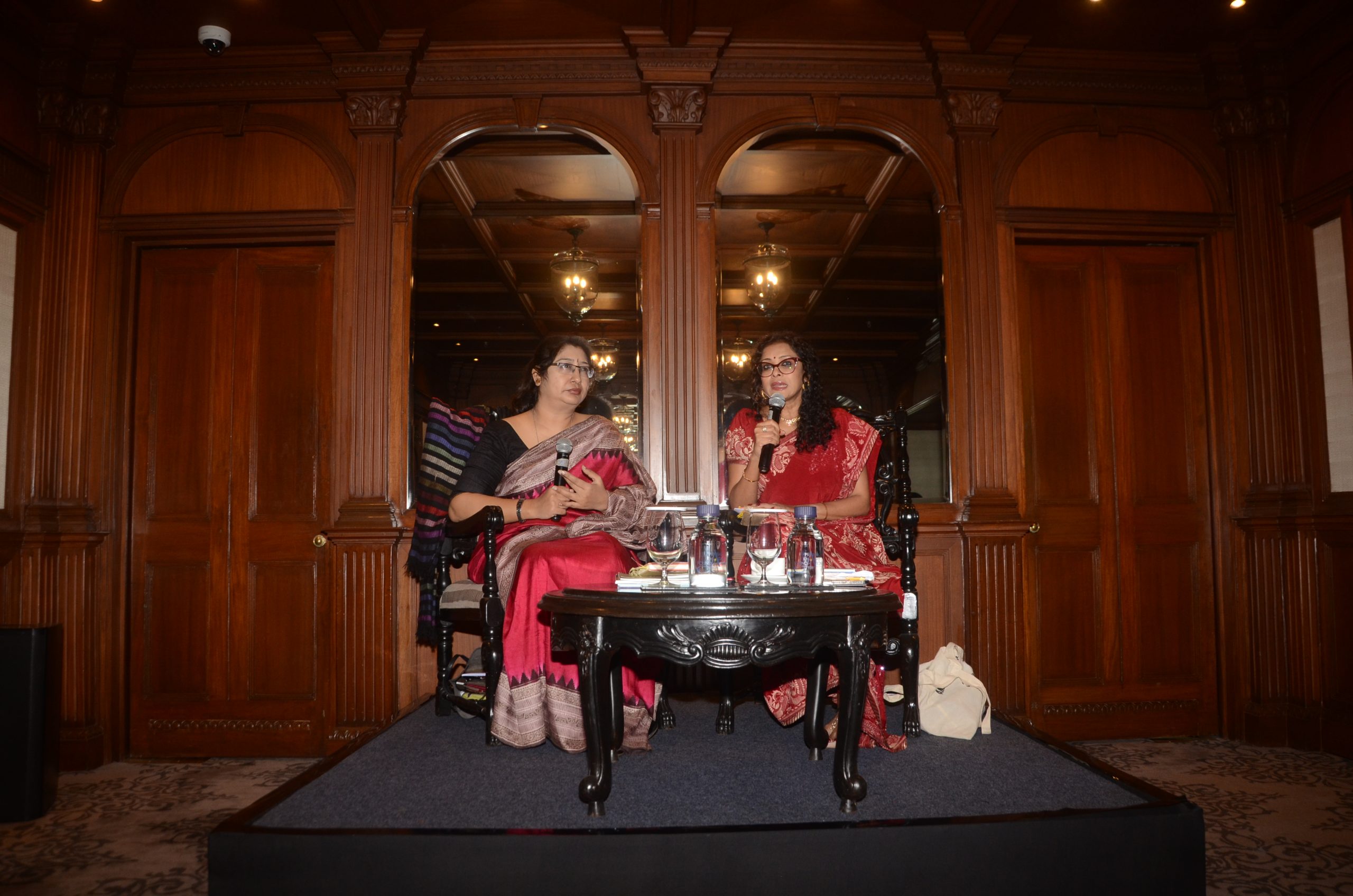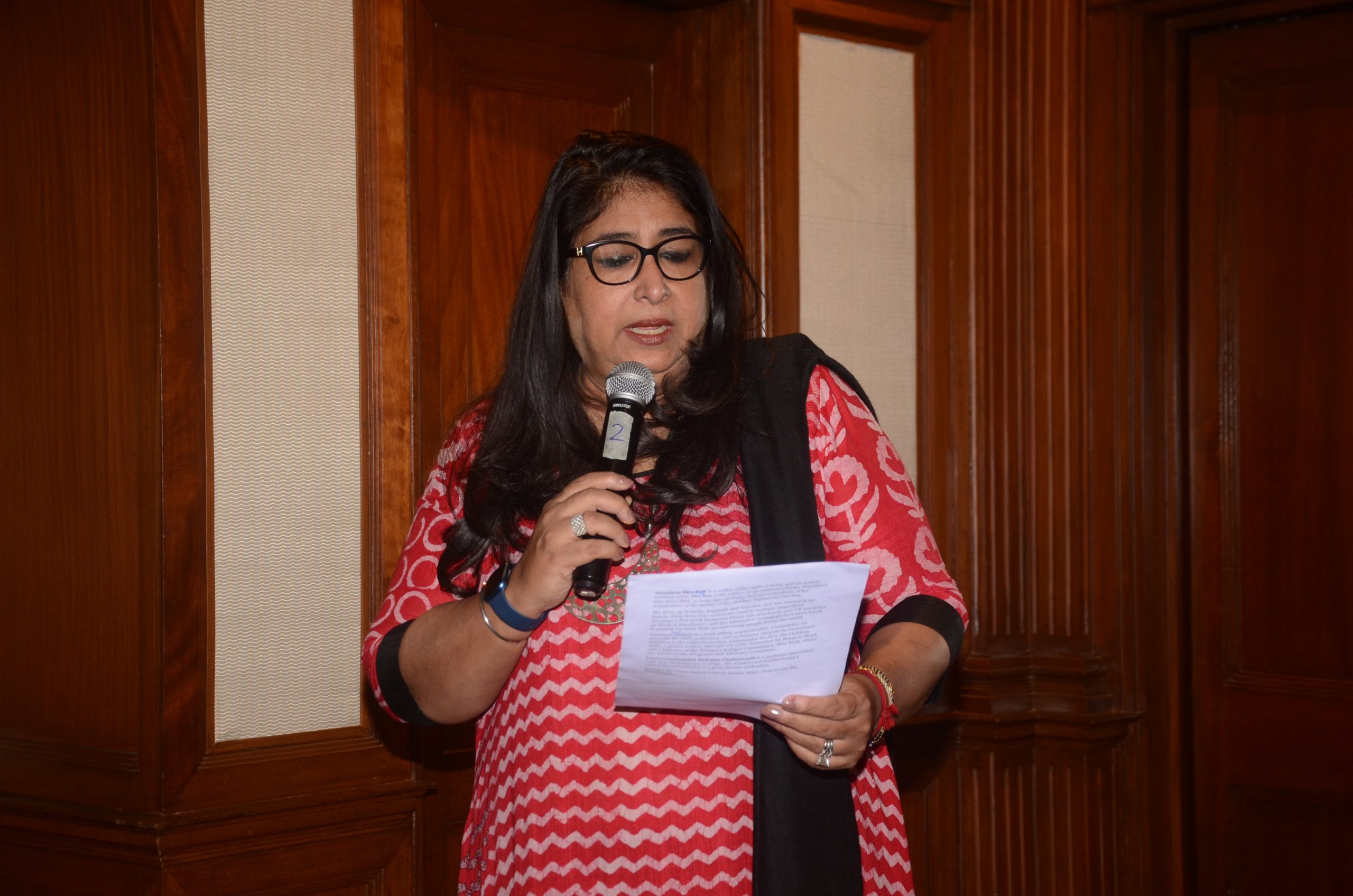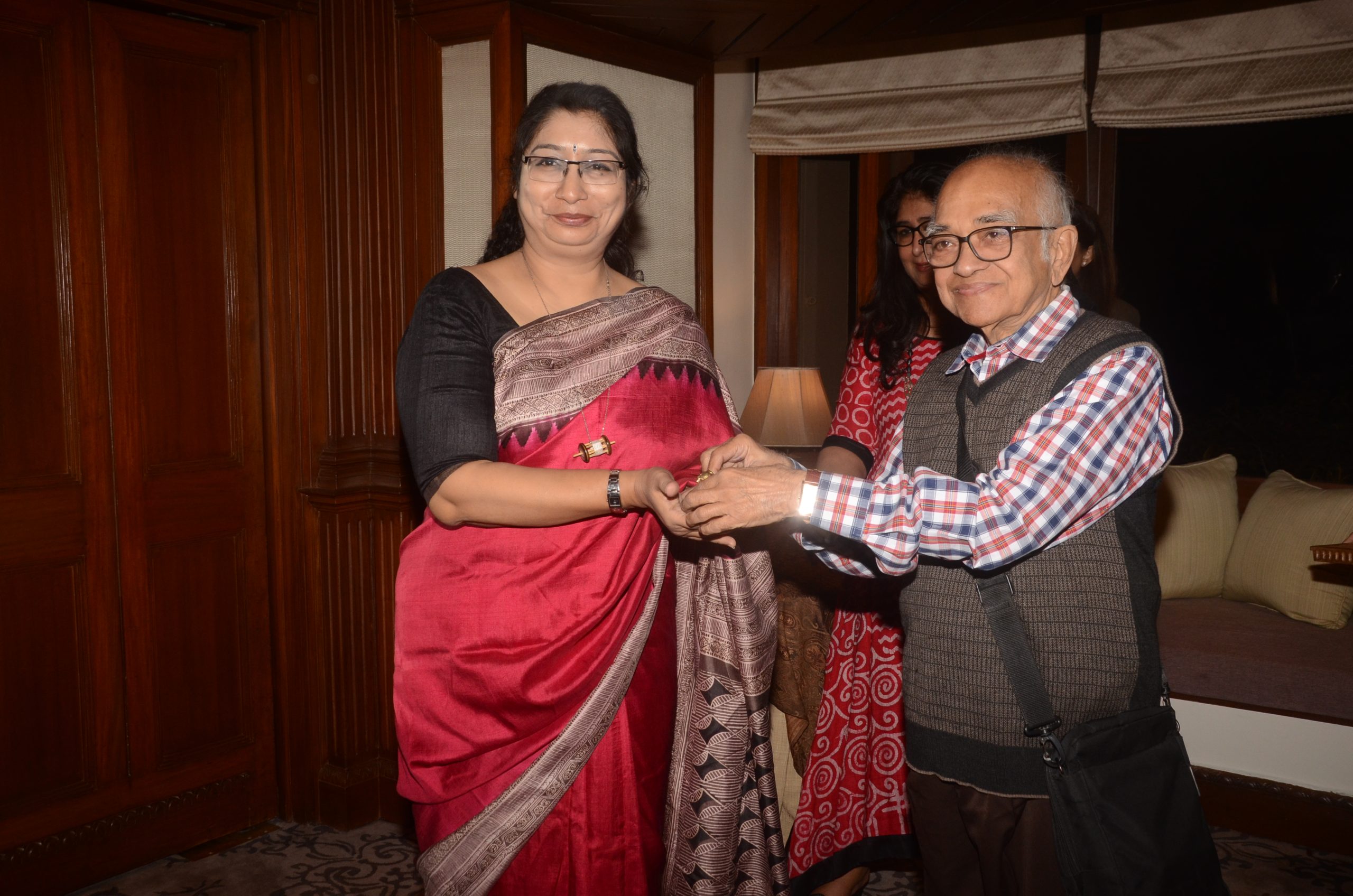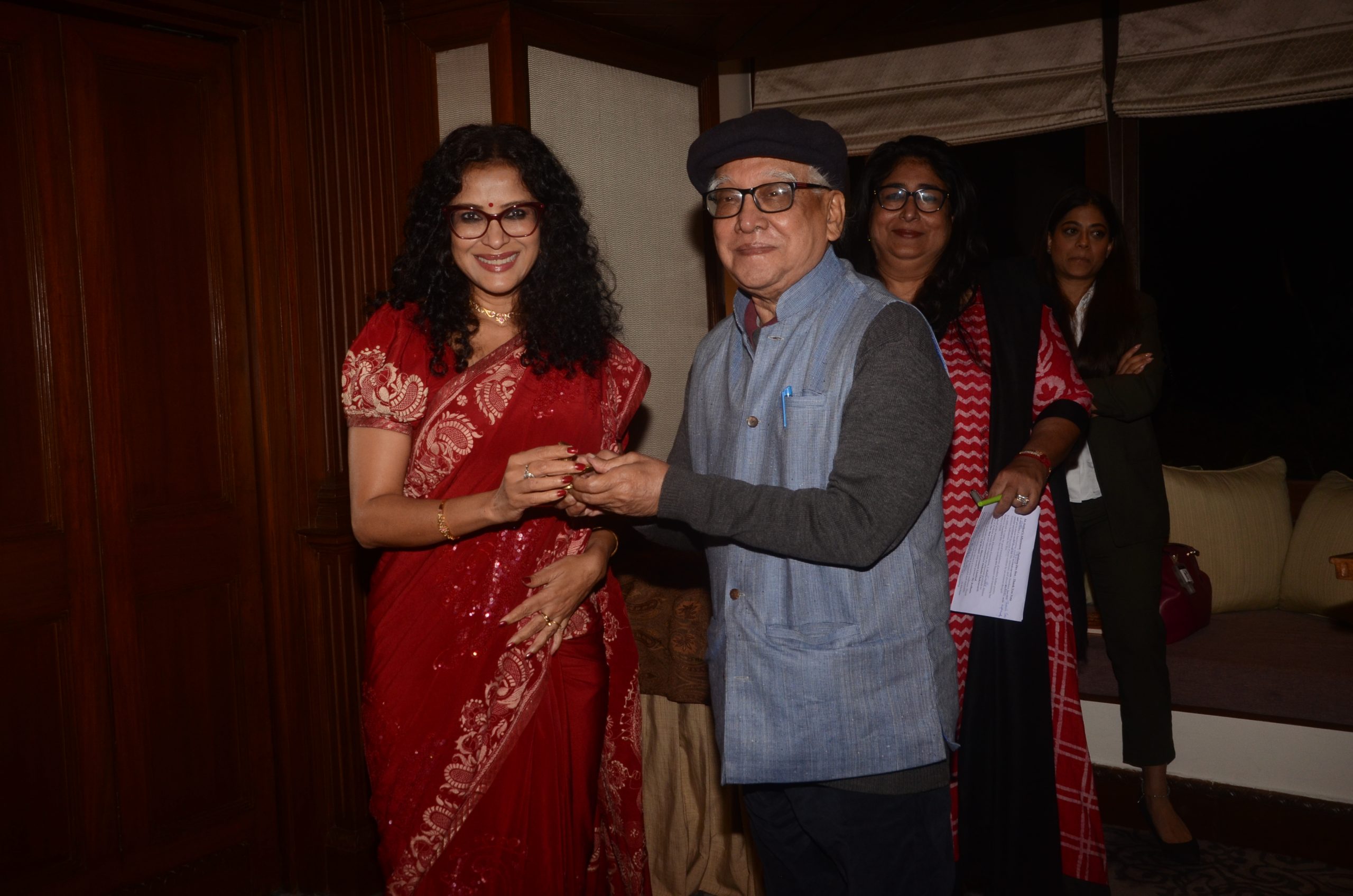Some poetry strikes a chord with readers and revives long-lost emotions, while some initiates people into new beliefs and ideas. Nabaneeta Dev Sen was a poet who created both with equal finesse. Her works have a visceral understanding of pain, negotiations with the self, feminist anger and resistance to patriarchy. Prabha Khaitan Foundation organised a memorable session of An Author’s Afternoon with the award-winning actor, writer and editor, Nandana Dev Sen. Through a lighthearted yet profound conversation with Debnita Chakravarti, an associate professor of English at Shri Shikshayatan College, Sen took a jaunt down memory lane and recorded the trajectory of her mother’s literary career, offering all a peek into the departed poet’s mind.
To “invoke the music of our mother tongue”, Sen began the session by reciting Nabaneeta Dev Sen’s poem ‘Madari’, which Sen has translated into English as ‘Acrobat’ – the title poem in the collection, Acrobat. It discusses how women segue into many roles with aplomb as if they are born for this. Second in this collection is ‘The Year’s First Poem’, written in Bengali as ‘Bochhorer Prothom Kobita’, which is a complex mixture of emotions. Both these poems are from Nabaneeta Dev Sen’s last collection of new Bengali poems, Tumi Monosthir Koro, and her gifted daughter translated it as Make Up Your Mind, a surprise reward for the mother on her seventy-fifth birthday.
Nabaneeta Dev Sen was “completely bilingual”, as Sen put it. Her readers have often been baffled by questions such as, why did she write only in Bengali? Didn’t she want her art to communicate with a wide readership? As a woman who always stood her ground, writing in Bengali was Nabaneeta Dev Sen’s “political” choice, a choice to not forsake the language she was born into. With a hundred books to her name, Nabaneeta Dev Sen’s untouched sadness was palliated when a copy of Make Up Your Mind grabbed the attention of a New York-based publisher called Archipelago Books. “We signed [Acrobat] exactly two weeks before Maa passed away,” Sen remembered. “Maa was so delighted about it. The very last column [a weekly column that Nabaneeta Dev Sen wrote] was about this book coming out. In those two weeks, we started choosing poems for Acrobat.”
On being asked how she took her pick from the myriad gems her mother wrote, Sen mentioned that she wanted to strike a balance with her choice of poems for Acrobat so that there were poems from all the phases of the former’s life as a writer and woman. Sen incorporated poems that exhibit a playfulness with language and experiment with styles. To represent the artist’s complete oeuvre, her joyous, poignant and political poems went into this collection. Acrobat took birth as a compilation that beautifully knits the banalities of life, body politics, human relationships, intimacy, politics and womanhood together – only that the artist did not live long enough to experience the love and praise readers showered on the collection.
Sen found her mother “unbreakable and invincible”. Her honesty, brutal and relentless, pervaded her life and art. The session was interspersed with Sen’s recitation of her mother’s poems. She addressed the question of self-effacement as a translator. The process was not easy, the pain of losing her mother was fresh in her mind. She grasped her mother’s art more deeply only after the latter’s death. She felt she was rebirthing the poems through her translations. Sen did not just translate, she recreated many of the verses. She believes, “Bengali is a very precise and economical language. There is a lot that you can express in a few words.” Language is evasive, more so when one is translating. Sen’s profession as an editor helped her choose the right words.
Sen is an inheritor of a “matrilineal legacy”. Her grandmother was a celebrated Bengali feminist poet, her mother was a staunch supporter of women’s rights. Nabaneeta Dev Sen rewrote typical patriarchal narratives from a woman’s perspective: the reason she was an artist who challenged and never preached. Sen feels rooted in this heritage. As an activist, her works concern children and women exposed to gender-based violence. All her children’s books have female protagonists to establish equality and equity.
Delighted, the audience asked engaging questions, alongside appreciating the “amazing playfulness” of Sen’s translations. Sen wrote a letter to her mother on her seventy-fifth birthday and kept adding to it on her subsequent birthdays until it took the shape of a daughter’s parting letter to her mother. With a tearmoistened voice, she read, “This obstinate daughter of yours kept saying to her mother in the last few weeks, ‘Ekkhoni naa, ekkhoni naa’ [Not yet, not yet].”
A vote of thanks by Malika Varma, Ehsaas Woman of Kolkata, concluded this mesmerising session. Pabitra Sarkar and Samik Bandyopadhyay felicitated Sen and Chakravarti respectively.

